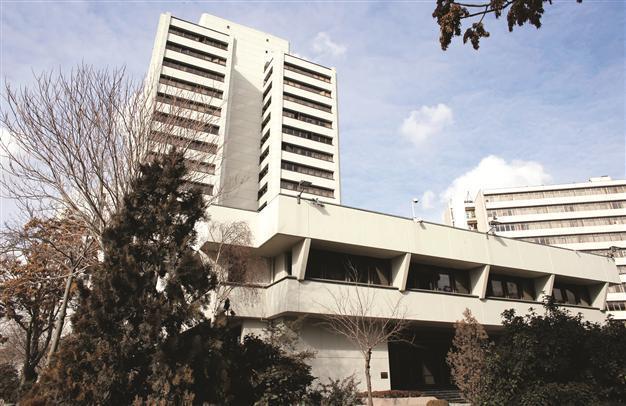Rate hike will curb lira volatility but hit growth: Moody’s
ISTANBUL

Turkey’s Central Bank headquarters in Ankara is seen. Rate hike will cost of weakening Turkey’s economic growth prospects, Moody’s said Jan 31. REUTERS photo
Turkey’s interest rate hike will alleviate some of the pressure on its sovereign creditworthiness and help curb lira volatility but will hurt its economic growth prospects, rating agency Moody’s said on Jan. 31.
“While the central bank’s action contains the country’s currency volatility, reduces financial stress in the economy and thus limits the likelihood of a balance-of-payments crisis, it comes at the cost of significantly weakening Turkey’s economic growth prospects,” Moody’s said in a statement.
Turkey’s Central Bank raised all its key interest rates at an emergency policy meeting on Jan. 29, ignoring opposition from Erdoğan as it battled to defend the lira following its fall to a series of record lows.
“Our 2014 growth forecast of 3 percent already incorporated expectations of significant monetary tightening this year, but risks to this forecast are tilted heavily to the downside in the wake of interest-rate tightening,” Moody’s analyst Alpona Banerji said in the report.
“The [central bank of Turkey] has also provided clear guidance on what it would consider to be the benchmark rate which had been absent in past monetary policy communications, thereby simplifying the country’s interest-rate regime and creating a clearer, more transparent operating environment for market participants,” the report also read.
A wide-ranging graft investigation, cast by Prime Minister Tayyip Erdoğan as a plot to undermine his government, has been shaking investor confidence in Turkey when the Turkish Lira is languishing around record lows, inflation rising and growth slowing.
In the beginning of June, the agency, which raised Turkey’s sovereign credit rating to investment grade last May, had said domestic political risk was already embedded in the country’s current rating.
